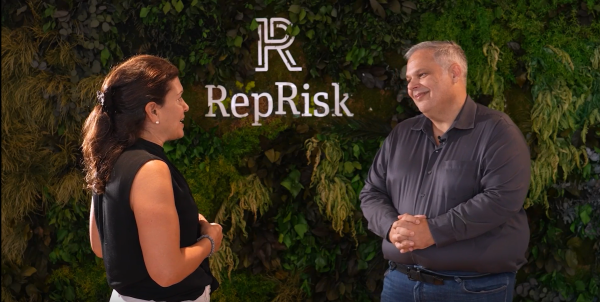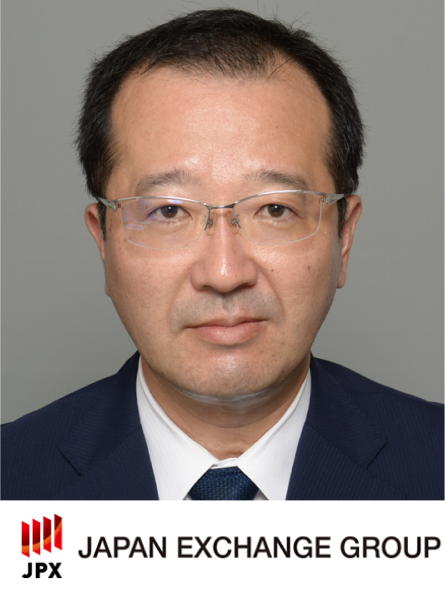# RepRisk interviews Cliodhna Murphy, Executive Director for Product Development at MUFG Investor Services
1. RepRisk: Please provide some insight into your specific role at MUFG Investor Services (MUFG) and the work that you and your team do to support your clients.
Cliodhna Murphy: I am part of the product development team. We focus on creating new products and services for our clients who are hedge funds, private equity, real asset, and fund of fund managers. We engage with our clients to understand the challenges and opportunities they face and then determine how we can evolve our product set to best support them. We also try to identify new areas, including regulations, that might impact them, and develop solutions to meet their needs.
2. RR: You recently launched ESG transparency reporting, featuring RepRisk data, as part of your mission to increase transparency in the industry. Why is transparency on ESG issues and risks key to financial decision-making, and what qualities and features were you looking for when selecting data providers to best enable that transparency?
CM: Although ESG has gained traction over the last two years, even this past summer we have seen the stark realization of climate risks. It is essential for investment managers to adequately assess environmental risks to their portfolio as well as factor in key social and governance criteria given their correlation to better performance.
When selecting data, we considered coverage of companies, depth of data collected, climate risk factors, use of technology to gather data, and rating methodology. Key differentiators with RepRisk were their use of AI and machine learning, outstanding company coverage, and outside-in approach to validate what companies are doing.
3. RR: Do you see ESG assessment methods that leverage corporate dialogue and engagement becoming more widespread? How can high quality ESG data optimize the engagement process?
CM: Yes, absolutely. We are seeing a move away from exclusions and a focus more on stewardship. Investors believe they have a responsibility to have a real-world impact with their investments, and two key ways they can exert influence are through engagement and voting. Identifying key material themes to assess companies and using metrics to assess performance over time are key tools in the engagement process.
4. RR: What are the challenges and barriers to ESG integration that are most frequently cited by your clients, and do they differ between public and private markets?
CM: Different strategies still face issues around how to integrate ESG data such as those with certain derivative instruments. There is also no industry consensus on how managers should treat and report long vs short positions.
In public markets some of the challenges are around the consistency of the data reported. In private markets, where no public disclosures are being made, managers are required to gather the data directly. We look to help our clients solve both of these challenges with our reporting solutions. Our partnership with RepRisk in part addresses those data gaps; as RepRisk provides data on more than 300,000 companies – 280,000+ of which are private companies.
5. RR: Similarly, what have you observed to be your clients main drivers and motivating factors for integrating ESG data in their investment practices?
CM: The initial catalyst was investor demand with institutional investors leading the way. The very ambitious EU Sustainable Finance Disclosure Regulation is also helping bring standardization and emphasis to those distributing in Europe. The last two years have seen large strides in the normalization of provision of ESG data and reporting to investors.
6. RR: What trends have you detected in ESG investment management over the past two years, and what are your predictions for the field moving forward?
CM: Carbon has become of increasing importance and we will see managers aim to align their portfolios with carbon goals such as alignments with The Paris Agreement or net zero. The current fundamental lack of data on the impacts on biodiversity will need to be addressed, and a greater focus placed on solving the challenges biodiversity faces; the investment management community could play a pivotal role in raising awareness and focusing on impact investing in this area.
Regulation is a key focus currently in Europe, and eventually in the US and Asia disclosures will become more burdensome on managers.
Conclusion
MUFG Investor Services partnered with RepRisk to enable MUFG clients to identify and assess business conduct risks within their portfolios. In Cliodhna Murphy’s role leading the Product Development team, she is tasked with understanding the opportunities and obstacles facing their clients and developing products and solutions to meet those needs. Their ESG transparency reporting solution features RepRisk’s relevant, decision-ready risk metrics and research generated by AI, machine learning, and human intelligence. Their clients, driven by investor demand and regulatory frameworks, use the solution to assess their portfolios for risks, optimize for alpha generation, and engage with portfolio companies.
Bio — Cliodhna Murphy
Cliodhna Murphy is an Executive Director for Product Development at MUFG Investor Services with responsibility for hedge funds, fund of hedge funds, and ESG business lines. Cliodhna has over 16 years of industry experience.
Cliodhna was previously at Man Group, where she served under various roles, including business manager for GLG Credit, head of investment management services, and head of investor services. Prior to Man Group, Cliodhna was the Chief Operating Officer for Decura, a VP at Goldman Sachs Administration Services and an Associate at Morgan Stanley Fund Services.



